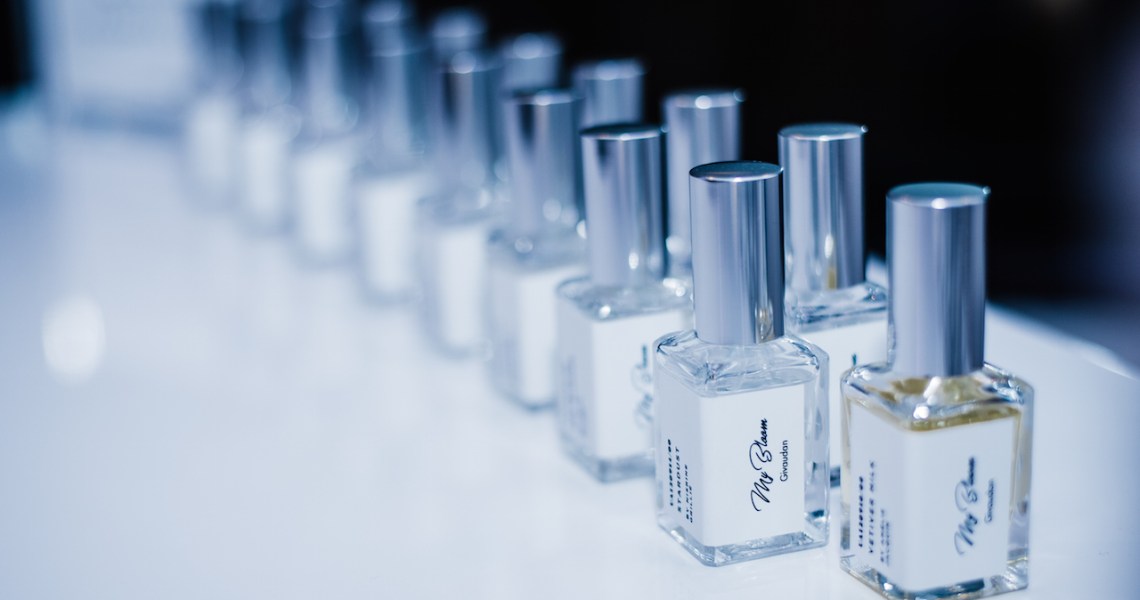In an attempt to showcase its new fragrance trends and capabilities, fragrance manufacturer Givaudan held its first-ever U.S. pop-up in Greenwich Village called “My Bloom.” The intent, however, was not for the public.
Held between Nov. 13 and 21, the invite-only pop-up brought together new and prospective clients to experience how Givaudan is adapting to trends, primarily by bringing its perfumers front and center. Givaudan, which creates fragrances for Diptyque, Victoria’s Secret and Paco Rabanne, saw this pop-up as a way to understand shifts in the fragrance market and retain awareness within the business-facing fragrance industry. Givaudan is the largest flavor and fragrance producer with nearly 20% market share, followed by Firmenich, IFF and Symrise.
Through eight months of consumer studies, Givaudan found that 55% of U.S. women were no longer interested in sexy or glamorous fragrances, and preferred scent profiles that revealed a softer and more personal aesthetic from brands like Glossier and Diptyque. The New York pop-up had five stations focused on themes like self-love or memory, and was an iteration of a five-day, Paris pop-up held in October. Across both locations, 300 prospective and current clients, like Tom Ford Beauty and CBD brand Saint Jane, attended.
“Every two years, we try to understand where the market is going,” said Arnaud Guggenbuhl, Givaudan global marketing head of fine fragrance. “We are trying to forecast the future of fine fragrance. We are seeing more consumers, particularly in the U.S., are looking for something that is much more intimate.”
Emily Bond, Givaudan head of fine fragrance North America also explained clients are looking for more innovative concepts and delivery methods with fragrance. Thus, the Greenwich Village pop-up, Givaudan showcased not only individual perfumers’ creations, but also innovative experiences for smelling them including a scent wall and fragrance-infused ceramic discs instead of traditional testing papers or strips.
“What has overtaken the perfumery industry is a new way of scenting, borne out of a consumer’s need for a different kind of product,” she said.
Predominantly, what this means is that Givaudan is attempting to understand the expansive but loosely defined natural and clean category. The product requirements from natural indie brands like Skylar and Phlur are forcing the manufacturing company to look at their products in terms of sustainability, veganism or organic. The company recently introduced an artificially intelligent program called Carto to help perfumers create new fragrances, as well as develop new biotechnologies for sustainability.
Ad position: web_incontent_pos1
The rise of e-commerce and direct-to-consumer brands has also changed the relationship that customers have with fragrance, as they are not as likely to test and purchase products from department stores. This ultimately impacts Givaudan’s clients and the demands placed on fragrance creators. This new dynamic was one of the driving reasons for hosting the pop-up offsite from holding meetings in its offices to remove clients’ mindset from the boardroom and marketing, said Guggenbuhl.
The pop-up and its components took 18 months to produce. Givaudan declined to state the pop-up’s investment, but the company reinvests 10% of its revenue into a research and development budget, from which the pop-up and its components were created. Givaudan saw fragrance sales increase by 8% year over year for the first nine months of 2019, according to its most recent earnings.
“You cannot meet clients in a traditional meeting room and say, ‘By the way, we have invented a new [concept],'” he said. “It doesn’t resonate, and it doesn’t feel authentic, and experiences are about authenticity.”




